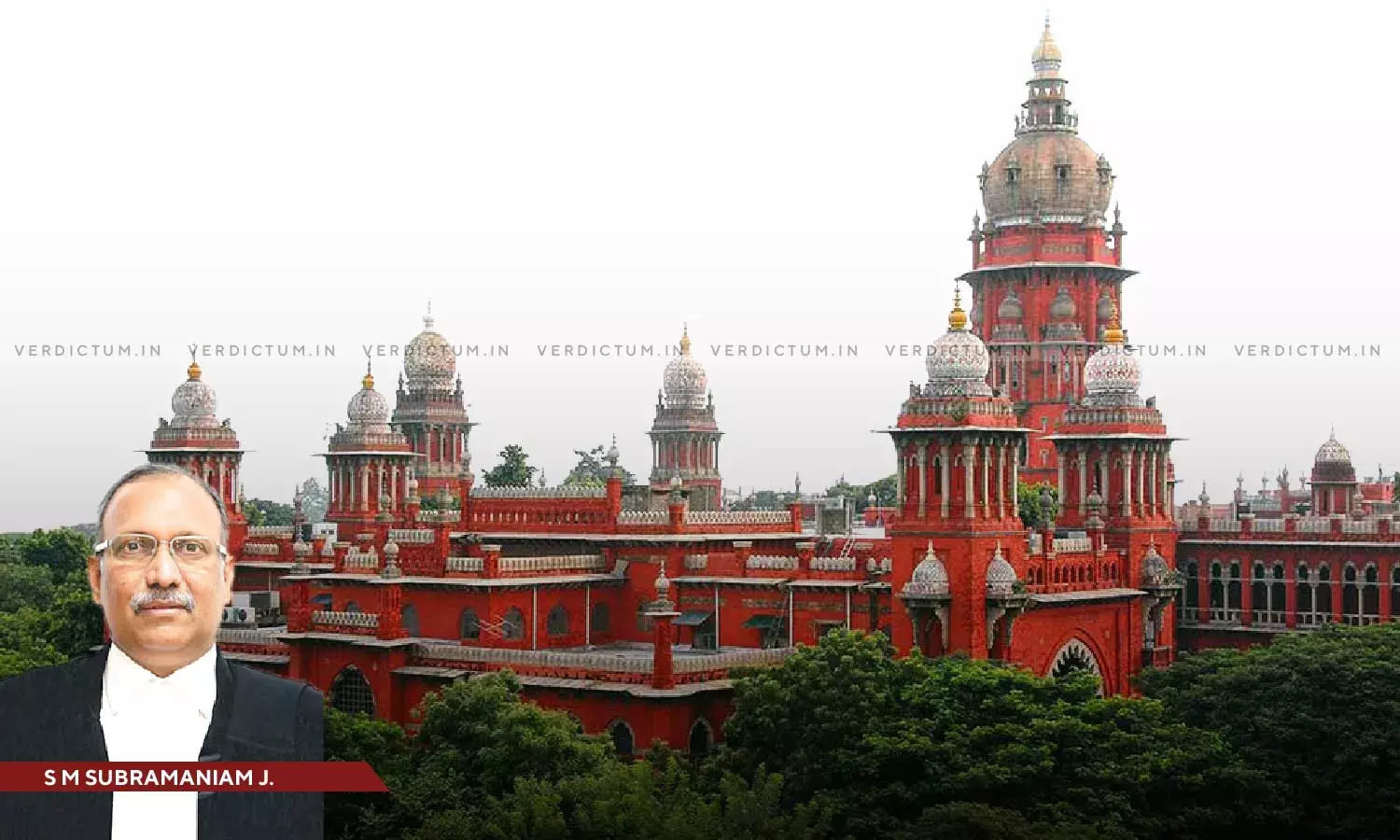Corruption In India Has Become Deep-Rooted; It Pervades All Levels & Services Not Even Sparing IAS, IPS & Judicial Service: Madras HC

The Madras High Court has observed that corruption in India has become deep-rooted which pervades all levels and services not even sparing the IAS, IPS, and Judicial Service.
A Single Bench of Justice S.M. Subramaniam said, “Corruption in India has become deep-rooted and is galloping unchecked and unhindered. It is well known how our Great Nation appears to be sinking deeper and deeper in corruption. There is little doubt that corruption in present-day India pervades all levels and all services, not even sparing the Indian Administrative Service, Indian Police Service and Judicial Service.”
The Bench observed that the experience of our Great Nation with corruption has shown that laws, rules, regulations, procedures, and methods of transaction of Government business, however sound and excellent cannot by themselves ensure effective and transparent administration if the political and administrative leadership entrusted with their enforcement fails to do so and abuses its powers for personal gain.
“The nexus between corrupt politicians and corrupt bureaucrats has been clearly proved in recent years by enumerable scams”, also said the Court.
Advocates V.S. Manimekalai and V.S. Selvaraj appeared for the petitioners while AAG P. Kumaresan, AGP T. Arun Kumar, Advocates H.Manivannan and V. Sivalingam appeared for the respondents. Senior Counsel (Amicus Curiae) R. Singaravelan assisted the court.
In this case, the Government employees or Police officials were themselves raising allegations of corruption against each other to a huge extent. A man filed a petition before the court who was a government employee against whom an action was initiated based on the allegation of accumulating disproportionate wealth along with others.
The petitioners submitted before the court that they were subjected to illegal criminal proceedings and hence they filed a writ petition before it.
The High Court in the above regard noted, “… it is imminent for this Court to consider the state of affairs and the large scale corruption amongst the Public Servants visibly noticed in the public domain. Though the Constitutional Courts emphasised that the corruption will stall the developmental activities, there is no considerable improvement in the matter of controlling the corruption in our Great Nation. Thus, this Court has taken a little effort to emphasis and to create awareness with a fond hope that some steps will be taken to minimise the corruption, by all concerned.”
The Court said that the Corrupt Public Servants (Forfeiture of Property) Bill though forwarded to the Ministry of Law and Justice, Government of India in the year 1999, it is kept in cold storage for the past about 24 years and under these circumstances, in order to initiate effective measures to prevent corruptions, the Parliament has to think about framing stringent laws.
“In the current day scenario, it is imminent for the Parliament to look into the evil effects of corruption in our Great Nation and do the needful, if necessary by considering the Bill submitted by Mr. Justice B.P.Jeevan Reddy”, added the Court.
The Court observed that corruption in any form is a crime against society and every public servant in our great nation is conscious and aware of the fact whether he/she is a criminal under the corruption laws or not.
“Taking note of the large scale corrupt activities in the Government Departments, Public Undertakings, Corporations etc., enumerable criminals are walking freely on the streets. Negligible number of criminals alone are inside the prison. Fear of corruption laws are faded from the minds of the corrupt public servants. Politicians & bureaucrats nexus give hopes to the corrupt officials to escape from the clutches of law. Corrupt officials are confident of escaping from punishment since implementation of corruption laws in our great nation is undoubtedly weak”, further observed the Court.
The Court also noted that the laws in force are inadequate to deal with the wealth accumulated through corrupt practices and criminals are freely allowed to enjoy accumulated wealth illegally through corruption.
“In respect of the present writ petition, as far as the writ petitioner is concerned, the actions were initiated by the Department of Vigilance and Anti-Corruption and it was dropped. However, no appropriate actions were initiated against the respondents six to eight against whom serious allegations are raised by the petitioners by narrating the incidents. When certain incidents are narrated with specific date, time and place, then the authorities are bound to conduct a thorough enquiry, so as to cull out the truth and if necessary initiate appropriate actions under relevant laws”, held the Court.
The Court said that the actions taken by the respondents were insufficient and also considered the fact that such large-scale corruption are causing greater set-back in “social justice” to the people of India.
“The respondents one to three are directed to verify the asset declaration given by the respondents six to eight and conduct an enquiry with reference to the allegations of disproportionate wealth raised by the petitioners and if there is any contradictions or discrepancies in the declaration all appropriate actions are to be initiated by following the procedures”, directed the Court.
Accordingly, the High Court issued necessary directions to the respondents and disposed of the petition.
Cause Title- M. Rajendran & Ors. v. The Secretary to Government & Ors.


